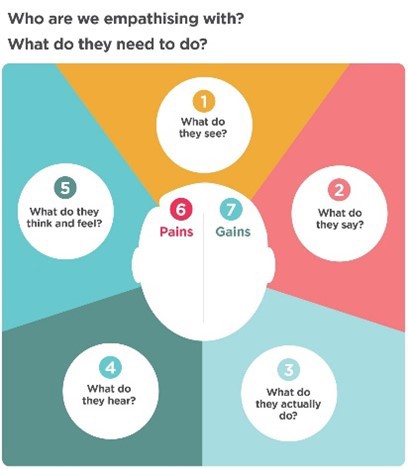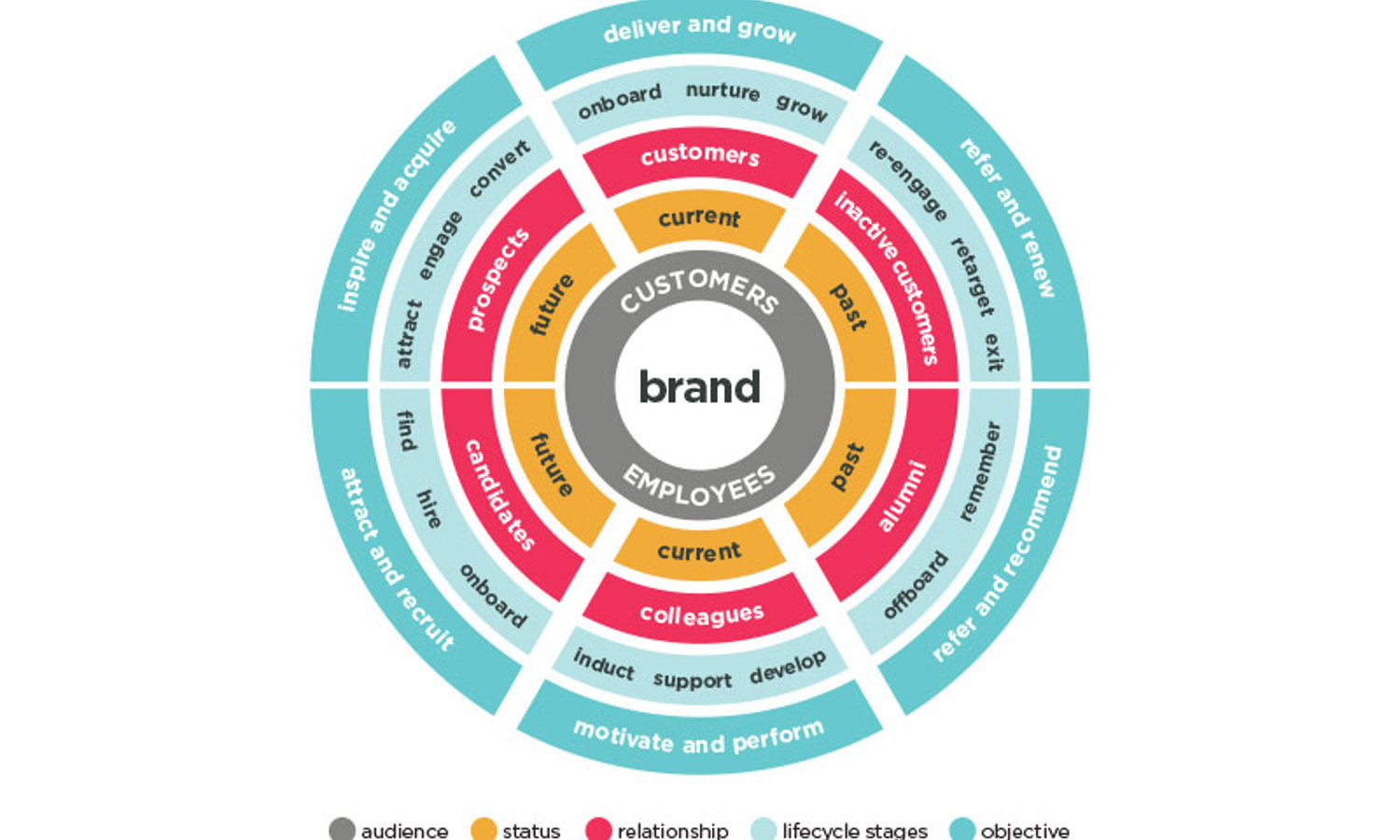What are Empathy Maps?
Empathy Maps build on Employee Archetypes and force us to put ourselves in the shoes of employees to consider their emotional or physical responses during specific Employee Experiences. Empathy Maps are about getting inside the head of your employees to understand what they might be saying, thinking, doing or feeling during an experience.
The Empathy Map template can either be used by an Employee Experience (EX) team to discuss ideas or can be used as a prompt when interviewing employees about their experiences. It can also help to identify any fears and concerns as well as their wants and needs.

If we take ‘Abigail’s’ first day as an example, it’s worth discussing questions such as:
- What is Abigail likely to be feeling on her first day? Nervous? Excited?
- Other than where her desk is, what else does she need to know?
- Where the toilets are? When she can go to lunch? Tea/coffee facilities?
- Are there any cultural expectations?
- Is there a dress code?
- Is it clear who her stakeholders are?
- Can she work from home?
- What about any parental or care responsibilities?
In short, if an employee is likely to be nervous, then reassure them; where they’re likely to be excited, then build upon this. Having all this empathy mapped will help enable you to create a successful experience. Empathy Maps are a key tool to remove any bias from your journey maps and keep everyone in the team aligned to a shared understanding of the employee.
You can download our Empathy Maps template and other EX tools here.
For more on Employee Experience frameworks, view this page.


